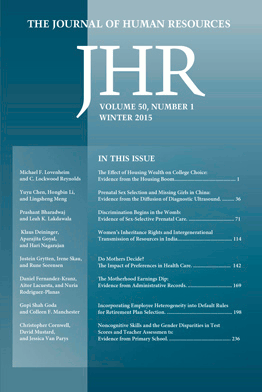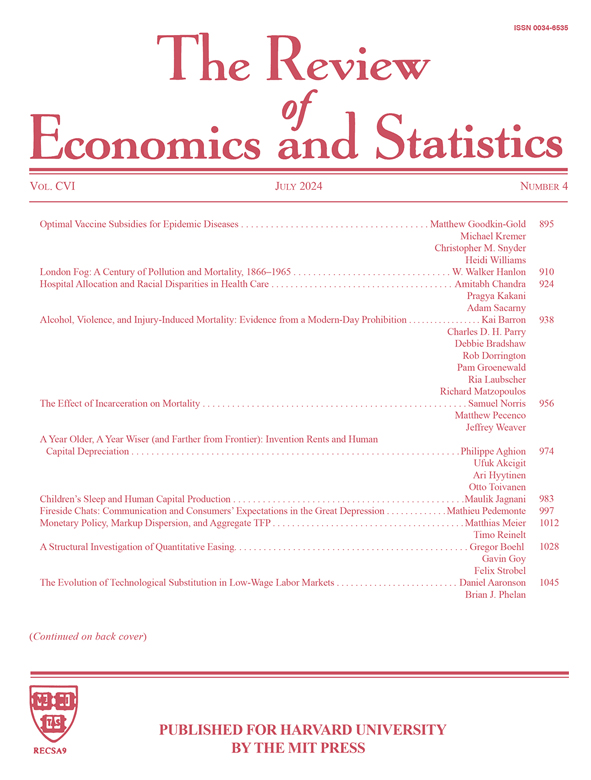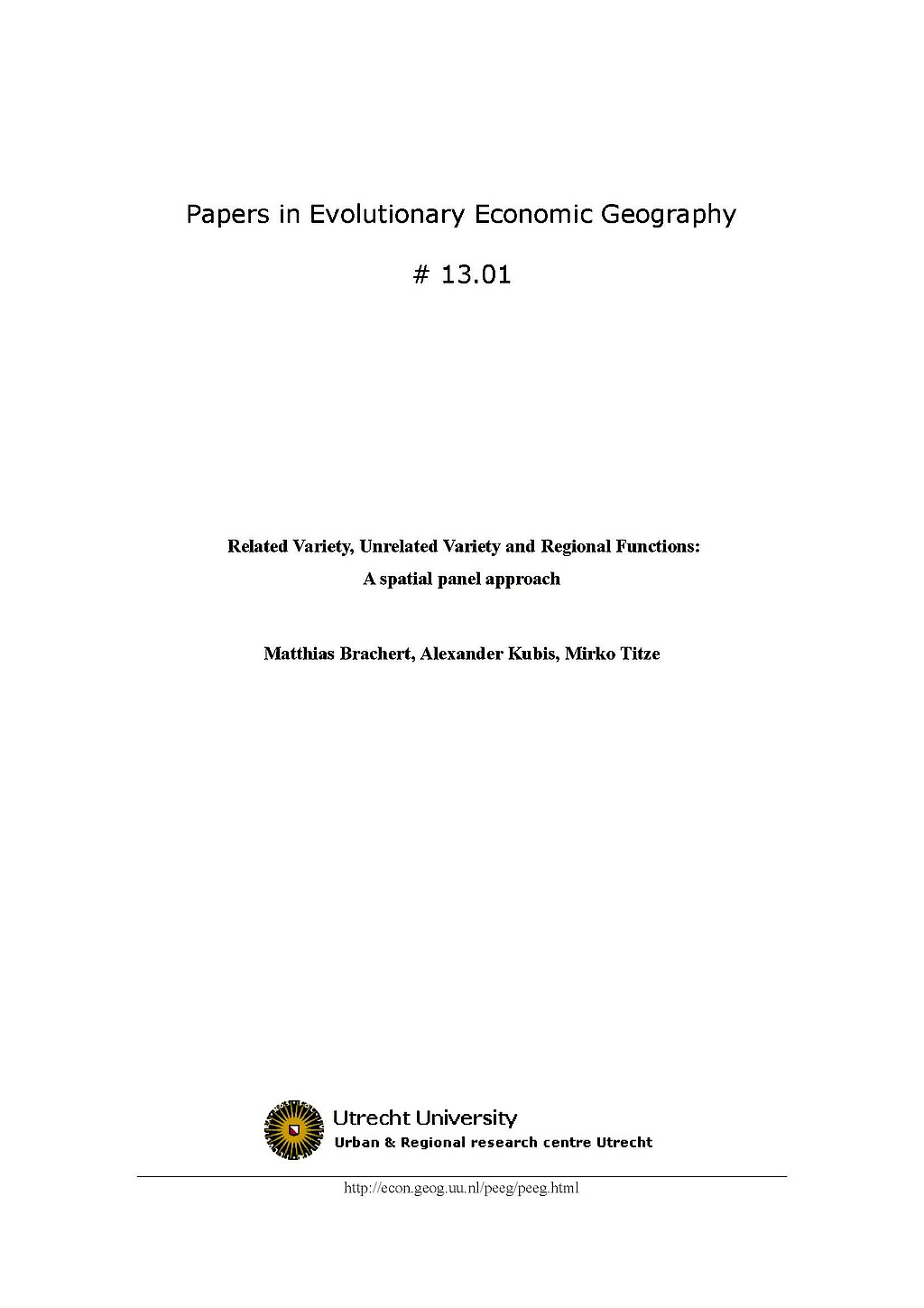Evaluation of Subsidy Programmes
This research group develops the scientific foundations for causal impact analysis of policy interventions within the European Union, with a particular focus on place-based policies. Despite significant public spending on such programmes in many developed economies, there is limited evidence on their effectiveness and efficiency.
Our approach integrates three key dimensions: first, the systematic use of administrative funding data and legislative documents; second, the application of advanced methods in policy impact evaluation; and third, the exchange of knowledge among researchers, policymakers, public administration, and civil society. Without this integration, research risks becoming either overly abstract or disconnected from the institutional and legal realities of policy implementation. By combining these elements, we create robust research designs grounded in real data and legal frameworks.
This approach allows us to generate evidence-based insights that contribute to better informed decision-making—not only in politics but also within civil society. The findings of our work have contributed to the revision and improvement of existing subsidy programmes. The research group is closely embedded in the activities of the Centre for Evidence-based Policy Advice (CEP), ensuring both scientific rigor and practical relevance. In doing so, we embody the leitmotif of the Leibniz Association: theoria cum praxi.
Research Cluster
Economic Dynamics and StabilityYour contact

- Department Centre for Evidence-based Policy Advice
EXTERNAL FUNDING
09.2019 ‐ 09.2022
Establishing Evidence-based Evaluation Methods for Subsidy Programmes in Germany (EVA-KULT)
The project aims at expanding the Centre for Evidence-based Policy Advice at the Halle Institute for Economic Research (IWH-CEP).
01.2018 ‐ 12.2020
Networked growth - Innovative Saxony-Anhalt through digital business models (Competence Center 4.0)
01.2017 ‐ 12.2018
Political Participation in Eastern Germany
12.2015 ‐ 11.2018
Socio-economic Effects of Research on Innovative Approaches for POC Diagnostics
Part of the EXASENS project. Coordinated by the Leibniz Institute of Photonic Technology (IPHT) in Jena, nine Leibniz institutes are working together on researching point-of-care (POC) technology for the prediction and diagnosis of chronic inflammatory respiratory diseases. See press release.
02.2017 ‐ 02.2018
The Importance of Non-University Research Institutions for the Development of Firms and Regions (Be_For_Reg-Projekt)
01.2015 ‐ 12.2016
Evaluation of the "Joint Task 'Improving the Regional Economic Structure'" in the Federal State of Saxony-Anhalt
Refereed Publications

A Professor Like Me: The Influence of Instructor Gender on College Achievement
in: Journal of Human Resources, No. 2, 2009
Abstract
Many wonder whether teacher gender plays an important role in higher education by influencing student achievement and subject interest. The data used in this paper help identify average effects from male and female college students assigned to male or female teachers. We find instructor gender plays only a minor role in determining college student achievement. Nevertheless, the small effects provide evidence that gender role models matter to some college students. A same-sex instructor increases average grade performance by at most 5 percent of its standard deviation and decreases the likelihood of dropping a class by 1.2 percentage points.

Soll die Höhe von Investitionszuschüssen an die Einführung von Umweltmanagementsystemen gekoppelt werden?
in: List Forum für Wirtschafts- und Finanzpolitik, No. 1, 2009
Abstract
In jeder arbeitsteiligen Gesellschaft ist Wirtschaftspolitik erforderlich. Im Rahmen der Wirtschaftspolitik wird versucht, ein komplexes Geflecht von Zielen zu erreichen. Es kann auch vorkommen, dass mit dem Erreichen eines Ziels ein anderes geschwächt wird. Dies ist Gegenstand des vorliegenden Beitrags. Konkret geht es um das Ziel Verbesserung der Wirtschaftsstruktur und das Umweltziel. Das Strukturziel wird in der Bundesrepublik Deutschland unter anderem über die Investitionszuschüsse im Rahmen der Gemeinschaftsaufgabe ‚Verbesserung der regionalen Wirtschaftsstruktur‘ verfolgt, die über die Länder ausgereicht werden. Einige Länder sind dazu übergegangen, die Gewährung von Investitionszuschüssen an Sekundärziele, zum Beispiel auch den Umweltschutz, zu knüpfen. Der vorliegende Beitrag beschreibt einen aktuellen Fall aus dem politischen Diskussionsprozess, in dem die Höhe des Fördersatzes an die Einführung von so genannten Umweltmanagementsystemen gebunden wird. Der Beitrag zeigt, dass unter bestimmten Konstellationen die Investitionstätigkeit gebremst wird und gleichzeitig Umweltmanagementsysteme nicht eingeführt werden. Damit hätte man beide Ziele nicht erreicht. Der bessere Weg bestünde in der direkten Unterstützung von Unternehmen, bei denen ein Umweltmanagementsystem sinnvoll ist, wie es bereits durch Programme auf Landesebene praktiziert wird.

Professor Qualities and Student Achievement
in: Review of Economics and Statistics, No. 1, 2009
Abstract
This paper analyzes the importance of teacher quality at the college level. Instructors are matched to objective and subjective characteristics of teacher quality to estimate the impact of rank, salary, and perceived effectiveness on student performance and subject interest. Student and course fixed effects, time of day and week controls, and students' lack of knowledge about first-year instructors help minimize selection biases. Subjective teacher evaluations perform well in measuring instructor influences on students, while objective characteristics such as rank and salary do not. Overall, the importance of college instructor differences is small, but important outliers exist.
Working Papers

Related Variety, Unrelated Variety and Regional Functions: A spatial panel approach
in: Papers in Evolutionary Economic Geography, 2013
Abstract
The paper presents estimates for the impact of related variety, unrelated variety and the functions a region performs in the production process on regional employment growth in Germany. We argue that regions benefit from the existence of related activities that facilitate economic development. Thereby the sole reliance of the related and unrelated variety concept on standard industrial classifications (SIC) remains debatable. We offer estimations for establishing that conceptual progress can be made when the focus of analysis goes beyond solely considering industries. We develop an industry-function based approach of related and unrelated variety and test our hypothesis by the help of spatial panel approach. Our findings suggest that related variety as same as unrelated variety facilitate regional employment growth in Germany. However, the drivers behind these effects do differ. While the positive effect of related variety is driven by high degrees of relatedness in the regional “R&D” and “White-Collar”-functions, the effects of unrelated variety are spurred by “Blue Collar”-functions in this period.













